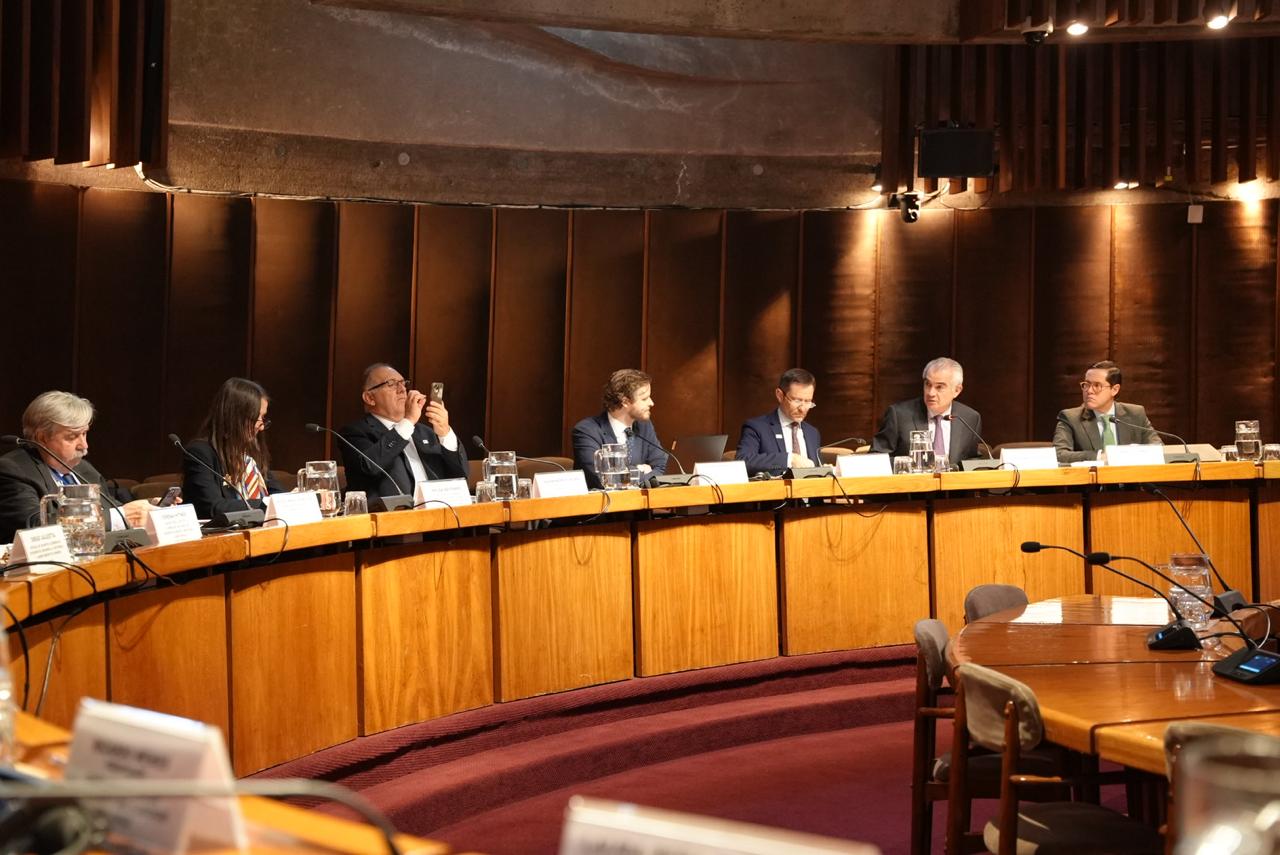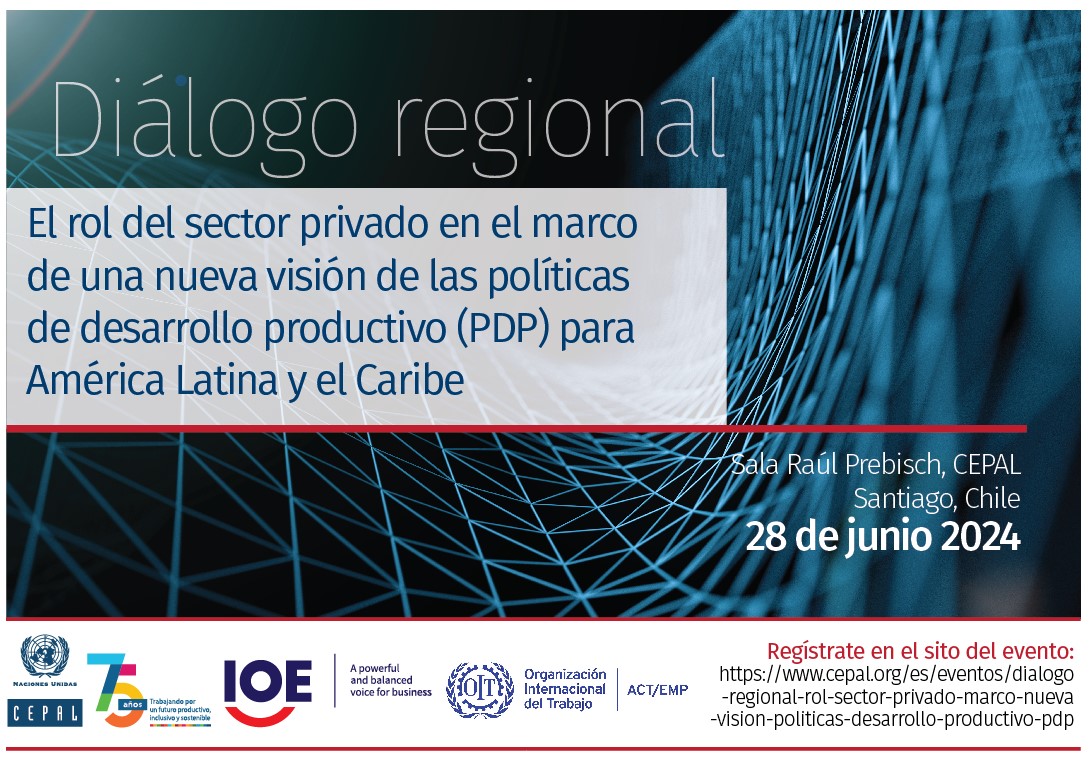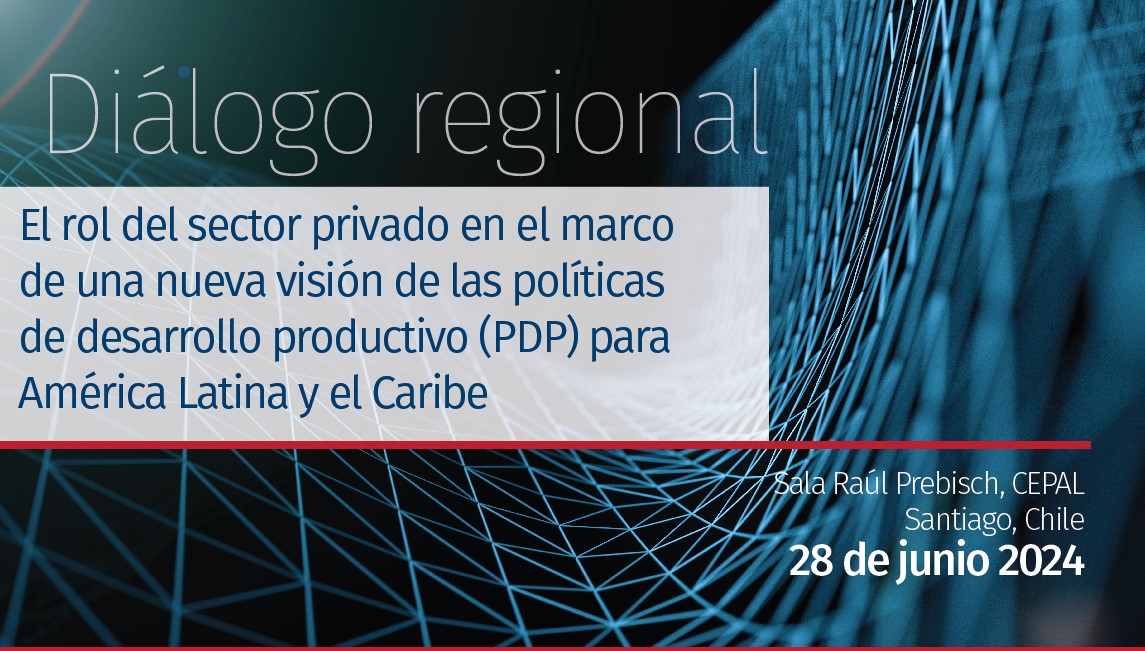ECLAC: The Private Sector is Called Upon to Be an Agent of Change for the Productive Transformation of the Latin America and Caribbean Economy
Work area(s)
José Manuel Salazar-Xirinachs, Executive Secretary of the United Nations regional organization, led the inauguration of a regional dialogue on the private sector’s role in the framework of a new vision for productive development policies, organized jointly with IOE and the ILO.

The private sector is called upon to be an agent of change for the transformation of Latin America and the Caribbean’s economy, in the pursuit of more productive, inclusive and sustainable development for the region, playing an even more vital role in the framework of productive development policies, the Executive Secretary of the Economic Commission for Latin America and the Caribbean (ECLAC), José Manuel Salazar-Xirinachs, stated this Friday, June 28, at the inauguration of the Regional Dialogue: “The role of the private sector in the framework of a new vision for productive development policies (PDPs) in Latin America and the Caribbean".
“To escape the trap of low growth in Latin America and the Caribbean, it is critical that countries scale up and improve their productive development policies. There is an entirely new paradigm regarding what these policies consist of and how to make them, and that is what we at ECLAC are promoting,” José Manuel Salazar-Xirinachs explained at the event organized by ECLAC, the International Organisation of Employers (IOE) and the International Labour Organization (ILO).
ECLAC’s highest authority clarified that “we are talking about productive development policies that prioritize proper governance and collaboration processes among the key stakeholders. Meaning PDPs that are understood, mainly, as collaborative efforts between the public sector, the private sector, academia and civil society, with the aim of identifying and addressing bottlenecks that may be limiting productive transformation, along with initiatives that would boost growth, productivity and competitiveness.”
“The private sector has already been participating in productive development policies in many of our countries and their territories, and there are many successful cases. However, we are convinced that businesspeople and their representatives could play an even more vital role in these policies,” José Manuel Salazar-Xirinachs emphasized during the opening session of the event, which drew the participation of government officials, representatives of business associations from the region’s countries, and specialists from international organizations.
In addition to participating in the design of PDPs to ensure that these policies have greater relevance, the private sector should co-lead cluster initiatives, invest more in Research and Development (R&D), and generate ventures in new activities that would diversify economies, the senior official indicated during a presentation entitled “Transformation of Latin America and the Caribbean’s development model and the role of PDPs.”
Likewise, big firms could serve as “anchor companies” to improve the productivity of their suppliers, as well as to support the international integration of other companies based on their capacities and distribution channels, he emphasized.
According to José Manuel Salazar-Xirinachs, “we must get behind sectoral efforts. It is important that countries, as public policy, work in partnership with the private sector in specific sectors. ECLAC has identified a portfolio of sectors for driving a major productive transformation in Latin America and the Caribbean.”
The opening session also featured remarks by Roberto Suárez Santos, Secretary-General of IOE, and Ana Moreira, the ILO Regional Director for Latin America and the Caribbean, followed by a presentation by the Director of Public Policy at the Confederation of Production and Commerce (CPC) of Chile, Javier Irarrázaval, on the main results of the ILO’s 2023 report on driving up productivity in Latin America.
Roberto Suárez Santos of IOE affirmed that “effective collaboration by the private sector that can have an impact, is linked to the shift in national and global policies. It is worthless for big multinationals to commit to putting resources, for example, into training young people or strengthening Artificial Intelligence integration, if later there are no policies, regulations or institutions that endorse and integrate this.” He added: “We believe it is important for the private sector to show leadership. We cannot let ourselves be swept along by an absolutely negative approach. We have to navigate these complex waters with a depoliticized approach.”
Meanwhile, Ana Moreira, the ILO Regional Director for Latin America and the Caribbean, emphasized that the current context of low growth and stagnant productivity necessitates “that the region search for options to improve and scale up productive development policies in a collaborative way with public and private sectors, workers, academia and civil society. Business organizations are fundamental and can actively contribute to the design, implementation and management of these new and necessary productive development policies.”
During his presentation, José Manuel Salazar-Xirinachs also sustained that social dialogue is a key instrument for managing and guiding the transformations that the region needs. “It is not only important to have dialogue on labor issues, but also on the macroeconomy, productive development and territorial development,” he said, announcing that in September ECLAC will release a new emblematic report on productive development policies in Latin America and the Caribbean, with the aim of publishing it annually.
On the event’s five panels, participants shared successful experiences with private sector participation in public-private governance spaces for addressing strategic issues such as sustainable development, the closing of gaps in human talent, the generation and dissemination of technology and knowledge, and territorial productive development.
Participating in the regional dialogue were representatives of business groups, government authorities and specialists from Argentina, Bolivia, Brazil, Chile, Colombia, Costa Rica, Ecuador, El Salvador, Guatemala, Honduras, Mexico, Paraguay and Peru.
Related content

El rol del sector privado en las políticas de desarrollo productivo en la región será discutido en la CEPAL
El viernes 28 de junio se llevará a cabo un diálogo que contará con la participación de autoridades, representantes de asociaciones empresariales de los países de América Latina y el Caribe y…
Related link(s)
Country(ies)
- Latin America and the Caribbean
Contact
Public Information Unit
- prensa@cepal.org
- (56 2) 2210 2040
